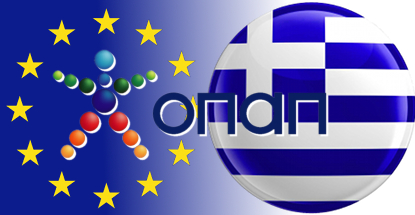 A European Union court has ruled that the Greek government’s decision to give betting operator OPAP an exclusive video lottery terminals (VLT) license and an extension of its monopoly on games of chance did not constitute unlawful state aid.
A European Union court has ruled that the Greek government’s decision to give betting operator OPAP an exclusive video lottery terminals (VLT) license and an extension of its monopoly on games of chance did not constitute unlawful state aid.
In December 2011, the Greek government awarded a 10-year exclusive contract to OPAP to operate 35k VLTs. In exchange, the state was to receive €560m. Greece also extended OPAP’s monopoly over 13 “games of chance by any means” by a further 10 years (from 2020 to 2030). For this, OPAP agreed to pay €375m plus 5% of gross gaming revenues.
At the time, the cash-strapped country was preparing to sell its one-third stake in OPAP in order to raise funds to help repay the €240b bailout Greece received from the European Union and the International Monetary Fund. Critics have charged Greece with unfairly fattening up OPAP at the expense of private operators in order to boost OPAP’s value on the open market. In 2013, the Emma Delta consortium purchased the government’s OPAP stake for €652m.
In April 2012, seven Greek casino operators filed a complaint about the VLT deal, saying the €560m price could have easily been exceeded had the government allowed for more than one VLT license to be issued via a public tender.
The Commission’s study of the two deals showed that the VLT deal was “significantly” more valuable than €560m, yet it found that OPAP had overpaid for the monopoly extension. To close the gap between these two deals, Greece announced it would pay an additional 5% on VLT gross gaming revenue if daily revenues breached certain thresholds.
In October 2012, the Commission okayed the VLT deal, saying the rejigged compensation was adequate and therefore the state was not conferring an advantage on OPAP. The casino operators filed a protest, saying the Commission had failed to initiate a formal investigation procedure, infringed their right to effective judicial protection and had failed to correctly assess the question of whether OPAP was being given an unfair leg up.
On Thursday, the General Court of the European Union rejected these arguments, saying it hadn’t encountered serious difficulties in assessing the deals and thus no need to initiate a formal investigation. The Commission’s redaction of economic data in the non-confidential version of the decision didn’t prevent the casino operators from grasping the Commission’s reasoning, nor from challenging the decision in court. The Court also said the casino operators had failed to demonstrate that the Commission erred in assessing both the VLT deal and the monopoly extension at the same time.
The casino operators have two months in which to appeal the ruling, although they are limited to challenging points of law only. Frankly, we figure the die was cast when the Commission noted that it was “taking account of the announced privatization of OPAP” while it was considering the deals. Call us cynics, but the Commission was presumably under orders not to do anything that might interfere with Greece’s ability to pay the vig on its bailout billions.
